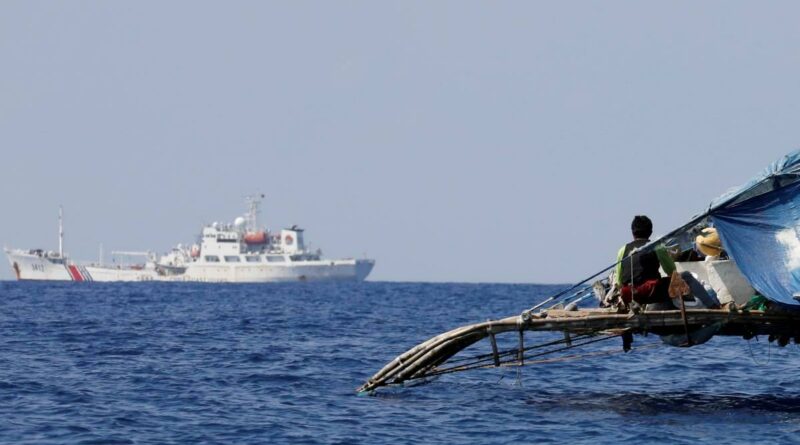Tolentino urges caution in West Philippine Sea joint exploration talks with China
Senator Francis Tolentino on Sunday called on the Department of Foreign Affairs (DFA) to be cautious on the planned discussions with China on a possible joint oil and gas exploration effort in the West Philippine Sea, warning that an agreement could lead to increased Chinese presence in the territory.
Tolentino, the vice-chairman of the Senate Committee on Foreign Relations, said this after Foreign Affairs Secretary Enrique Manalo said that the Philippines and China are set to resume exploratory talks.
“Baka kunyari lang ito na may joint exploration tapos sila na pala ‘yung nandun. Nakapasok na dun lahat under the guise… Baka lalong dumami kasi ang sasabihin nila, ‘Meron kaming karapatan ngayon na mag-drill, mag-conduct ng scientific marine research,'” he said in a Super Radyo dzBB interview.
(Maybe this joint exploration is just a ruse, then suddenly China has entered the West Philippine Sea under this guise. Many of their vessels may get there and they may say they now have the right to drill and to conduct scientific marine research in the area.)
“Baka lalong lumawig pa na maabuso at lalong dumami ang kanilang prisensya doon, ma-legitimize pa ‘yung mga dating mali… Sa akin, dapat mag-dahan dahan, mag-hunos dili dahil baka patibong po ito,” he added.
(Their presence there may even increase and we may get more taken advantage of. This may even legitimize what was wrong. For me, the DFA should be cautious because it might be a trap.)
The lawmaker also said the Senate should be involved in the discussion between the two countries as this may be an extension of our foreign policy.
Manalo had said that in the joint exploration talks with China, the Philippine side would be guided by the Constitution.
Tolentino, however, stressed that the discussion should also recognize the 2016 arbitration ruling in favor of the Philippines, and the country’s exclusive economic zone.
“Dalawa po ‘yan. Hindi lang dapat sila makipagusap na nagpe-prepare kung ano ang gagawin. Dapat lahat ito ay kargo nila— ‘Yung pagprotekta sa ating EEZ… at ‘yung desisyon ng Korte Suprema,” he said.
(There are two things – they should not just talk about preparing for what to do in the exploration. All of these should be on their minds – the protection of our EEZ and the decision of the Supreme Court.)
“Subalit, kung magagawan ng paraan ng DFA na ito ay magko-comply sa ating Saligang Batas, tayo ang may kontrol, tayo ang magsu-supervise, at ‘yung 60-40 na nakalagay sa Saligang Batas na mga korporasyon ay masusunod, palagay ko pwede pa ring idagdag kung ano mang agreement whereas both parties will undertake to explore minerals and resources within the Philippine EEZ. Maganda ‘yung kasi nire-recognize na ‘yung arbitral ruling,” he continued.
(However, if the DFA could make this joint exploration deal comply with our Constitution, then we should be in control, we will supervise, and the 60-40 that is stated in the Constitution of corporations will be followed. If these conditions are met, I think any agreement in which both parties will explore for minerals and resources within the Philippine EEZ will also be possible. This is good because the arbitral ruling will be recognized.)
In November 2018, the Philippines and China signed a memorandum of understanding (MOU) in which both governments agreed to establish an intergovernmental joint steering committee to look into possible energy cooperation.
The MOU also provides that working groups from each country “will consist of representatives from enterprises authorized by the two governments.”
However, in 2022, during the last months of President Rodrigo Duterte’s administration, the Philippines ordered the termination of the discussions with China, citing constitutional constraints and issues on the country’s sovereignty. — DVM, GMA Integrated News




